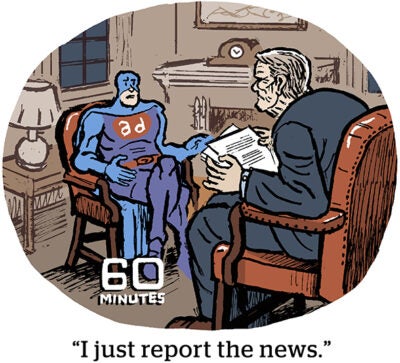Here’s today’s AdExchanger.com news round-up… Want it by email? Sign up here.
Demand More
Google has started its global rollout of Demand Gen, a machine-learning ad product launched in beta over the summer.
Demand Gen is akin to Performance Max, Google’s most prominent machine learning-based ad product … which is a euphemistic way to say that Google’s algorithm does the thinking and optimization instead of media buyers. Google digests an advertiser’s conversion goals and creative assets, which it repurposes across Google platforms. In Demand Gen’s case, those platforms include YouTube, Gmail and Discovery, which is Google’s visual search feed.
Demand Gen’s distinction from PMax is its laser focus on, well, generating demand, whereas PMax and Google in general are great at converting preexisting demand, like when someone specifically searches for “trip to Miami” or “blue button-down.”
Demand Gen campaign ROAS will therefore be low relative to campaigns that target customers closer to the point of purchase, according to Menachem Ani in a column for Search Engine Land.
Although Google never mastered Facebook’s knack for taking advertising customer lists and creating practically endless lookalike audiences, that is what Demand Gen will be for Google.
In fact, Google’s blog post is titled: “Demand more from social with AI-powered ads.”
Do Newsfeeds Feed Any News?
As social media disinformation and misinformation – as well as law-violating content – related to the war in Israel and Palestine proliferates, the EU has warned X and Meta to rein in their user posts, TechCrunch reports.
Since violence broke out on Saturday in the Israel-Hamas war, users have uploaded genuine graphic images and video clips to both platforms. But fake and altered videos have also gone mostly unchecked.
EU internet market commissioner Thierry Breton penned letters to Elon Musk and Mark Zuckerberg urging them to ensure compliance with the Digital Services Act, which requires “Very Large Online Platforms” (the EU’s term) to report AI-related or algorithmic risks. VLOPs (seriously) must also proactively spot and reduce political disinformation and quickly respond to reports of terrorism or other illegal content.
Beyond the Israel-Hamas war, the EU is concerned about the ability of social platforms to crack down on disinformation related to upcoming political elections in Europe. Videos featuring the AI-generated voices of politicians recently threw a wrench into Slovakia’s election.
Keep Searching
The ongoing Google antitrust trial has put an uncomfortable spotlight on Google’s default search payments to Apple.
But that contract may disappear depending on the outcome of the DOJ suit, which has inspired widespread speculation about how the regulatory ball might keep bouncing through the market.
Bernstein, a wealth management firm, published a report on the implications for Apple if it loses the Google Search deal, reports 9to5Mac. Bernstein estimates that Google payments make up 15% of Apple’s operating profit (because the entire payment is profit).
The court may specify that the Google/Apple search deal must end, but it could also happen that Google is simply disallowed from exclusive default mobile search contracts. Apple would probably be required to present a search choice screen and has enough weight that it’ll get a commission from any search engine presented to iOS users. Even with others taking a cut, Apple could still make billions in pure, easy profit.
The unintended loser could be Mozilla – ironically, the largest independent browser out there. Mozilla, after all, gets most of its money from default Google Search fees. And, unlike Apple, the Mozilla tent will just fold up without a pole to support it.
But Wait, There’s More!
Utah filed a lawsuit against TikTok, alleging the company is “baiting” children into addictive and unhealthy social media habits. [AP]
Google will no longer claim in its ads that YouTube TV is “$600 less than cable” after an industry review board found the assertion to be misleading. [Variety]
Microsoft tweaks its $69 billion Activision Blizzard deal to avoid an EU probe. [Bloomberg]
How much TikTok Shop sellers can earn in bonuses around Black Friday and Cyber Monday, per a leaked document. [Insider]
Ad-free viewing is getting more expensive. [Marketing Brew]
You’re Hired!
Ogury names Samir Chabab as VP of marketing. [release]
Teads appoints Meg Runeari to the dual role of COO and chief experience officers, and names Mike Dupree as CRO in the US. [release]















